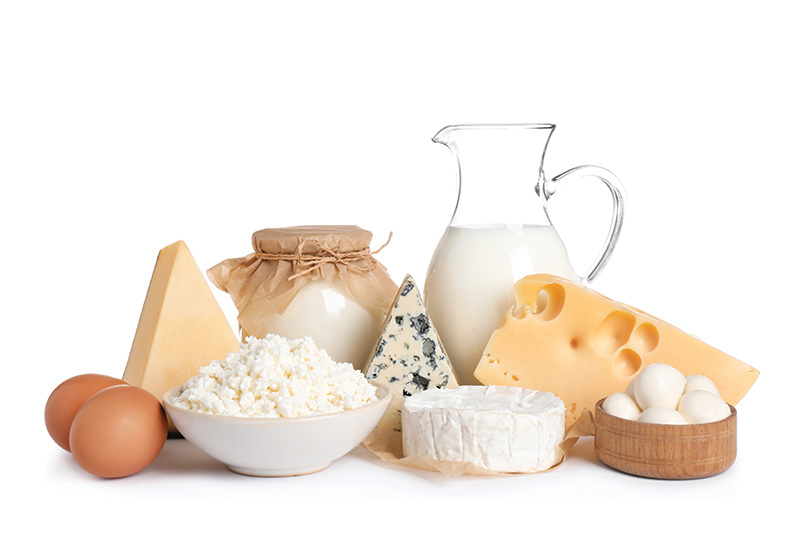Menopause can bring a wave of changes and symptoms, including hot flashes and central weight gain, as well as more subtle issues like bone density loss, fatigue, and forgetfulness. These symptoms are often attributed to hormonal imbalances, but with the right approach to nutrition, you can prepare your body for these changes.
In our practice, we encounter many women who have diligently followed conventional health advice – eating low-fat, low-salt diets, focusing on lean proteins, taking vitamins, and exercising regularly. Despite these efforts, they still face the frustrating effects of menopause.
Traditional health advice often overlooks a crucial factor: the role of adrenal glands and the specific nutrients required for optimal hormone production. Understanding the complexity of our body’s internal systems unveils the power of a food-first approach.
Understanding Hormonal Production
The adrenal glands are paramount in maintaining hormonal equilibriums. The adrenal cortex produces steroid hormones, including:
- Aldosterone: Helps regulate blood pressure by balancing sodium and potassium levels.
- Cortisol: Plays a vital role in stress response, metabolism, and immune response.
- Sex Hormones: Including DHEA, estrogen, progesterone, and testosterone, crucial for overall vitality.
Cholesterol is the indispensable building block for all steroid hormone synthesis. Your body can produce cholesterol; however, synthesizing cholesterol is an energy-intensive process, particularly for the adrenal glands, which need an abundant supply to meet hormone production demands, especially during life transitions such as menopause.
How Modern Advice Taxes the Adrenals
Standard advice often promotes avoiding cholesterol and medically lowering its levels, which can impair your adrenal glands by depriving them of the essential substance needed to produce crucial steroid hormones. This forces the adrenals to produce cholesterol, a task they are not designed to prioritize. The process becomes even more demanding when salt intake is reduced, as the adrenals are then compelled to generate more aldosterone. High-stress environments further amplify this issue by requiring increased cortisol production, thus escalating the demand for cholesterol.
During menopause, ovarian sex hormone production stops, requiring the adrenals to be the primary source. A diet low in cholesterol, combined with increased salt and stress hormone needs, can leave your adrenals struggling to produce adequate sex hormones, potentially exacerbating menopausal symptoms. A food-first approach includes ample cholesterol-rich foods to provide the raw materials necessary for efficient hormone production.
Top Cholesterol-Rich Foods for Hormonal Health
Before considering external hormone replacements, it is crucial to ensure your diet supports adrenal health with high-cholesterol foods. Consume foods that contain cholesterol bioidentical to the very cholesterol your cells need and use. These molecules are abundant and exclusively found in animal-based sources – not from plants, which contain sterols that do not match the intricate biochemistry within your cells.
If you build your meals with complete protein sources like meat, poultry, fish, seafood, and eggs, you are consuming the correct form of cholesterol. Upgrading to higher-fat, animal-based meals floods your system with the very building block your body needs, allowing the adrenals to produce on demand the steroid hormones your body demands:
- Eggs (especially yolks): Egg yolks are a powerhouse of essential nutrients and cholesterol. Incorporate extra yolks into sauces and dips to boost your dietary intake.
- Fatty Beef and Beef Tallow: Fatty cuts of beef and beef tallow are excellent sources of cholesterol. Adding beef tallow to meals enhances flavor and supports hormone synthesis.
- Organ Meats: The heart, kidney, and liver are rich in cholesterol and vital nutrients. Suet, the fat around the kidney, is particularly beneficial. Cooking these in butter, ghee, or beef tallow maximizes their nutrient potential.
- Full-Fat Dairy: Traditional fats such as butter and ghee, rich in cholesterol and fat-soluble vitamins, are ideal for cooking.
- Fatty Fish: Fish such as sardines and salmon are budget-friendly and packed with cholesterol, supporting overall health and adrenal function.
- Shellfish: Oysters, mussels, shrimp, crab, and clams offer a wealth of cholesterol and essential micronutrients.
A Comprehensive Approach to Hormonal Health
At Food First MD, we advocate for a holistic and personalized approach to health. We understand that believing in your body’s innate ability to self-regulate can make a profound difference. Providing your body with the right nutrients supports the synthesis of hormones and other biochemical products essential for navigating life’s transitions.
We are committed to guiding you through these changes with expertise and care. Remember, the right dietary choices can mitigate menopausal symptoms and help you maintain balance and vitality. We help empowering women to harness the power of food to ease hormonal transitions naturally. Trust in the power of food and take charge of your hormonal health now. Visit foodfirstmd.com to learn more and schedule a consultation.
Christine Najjar, MD, MS, MHP, ABOM, is a board-certified Internal and Obesity Medicine physician with a master’s in human nutrition and a bachelor’s in biochemistry. As the founder and CEO of Food First MD, she creates prescription-strength nutrition plans that target an array of chronic conditions, offering food-first solutions to food-first problems. Dr. Christine is driving the grassroots metabolic health movement, integrating food as medicine and transforming standards in healthcare.
